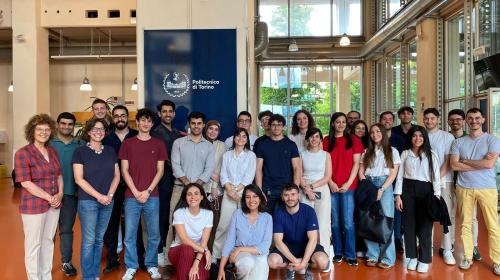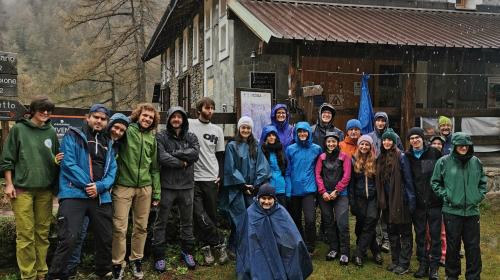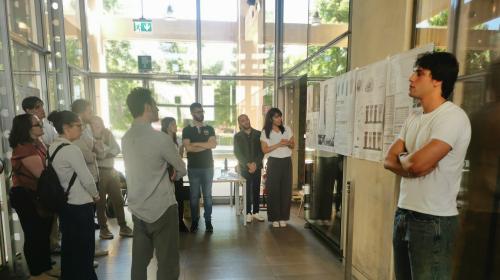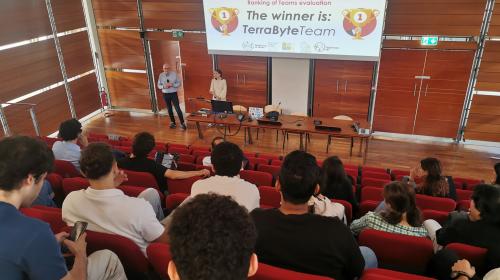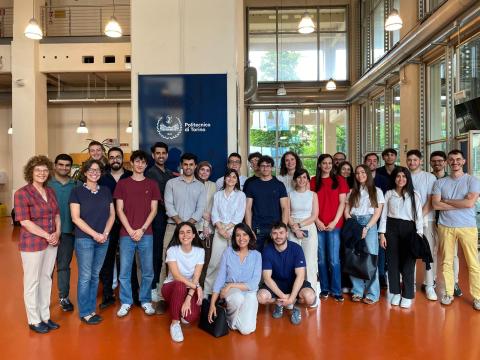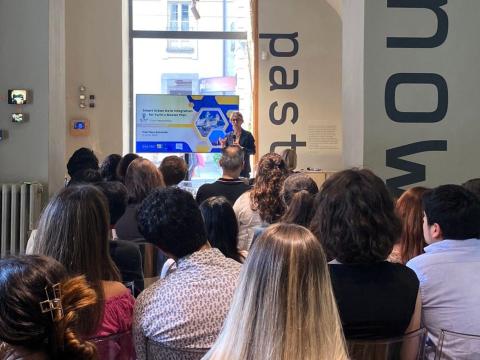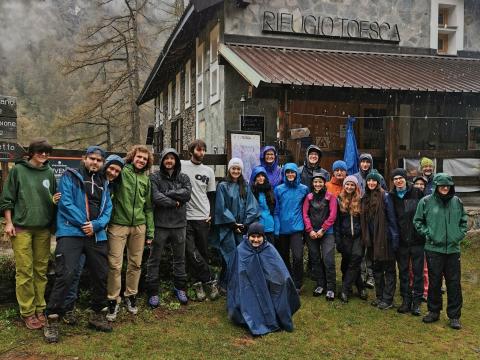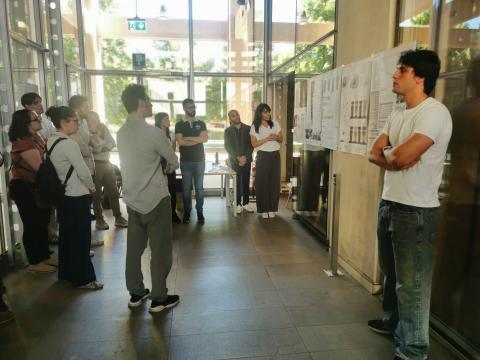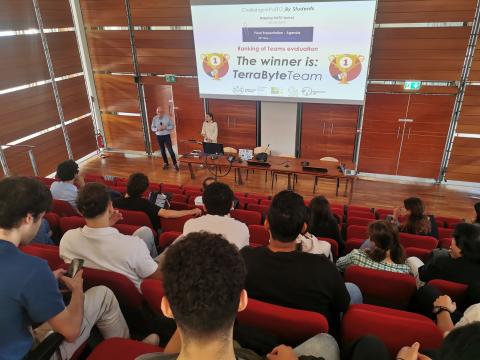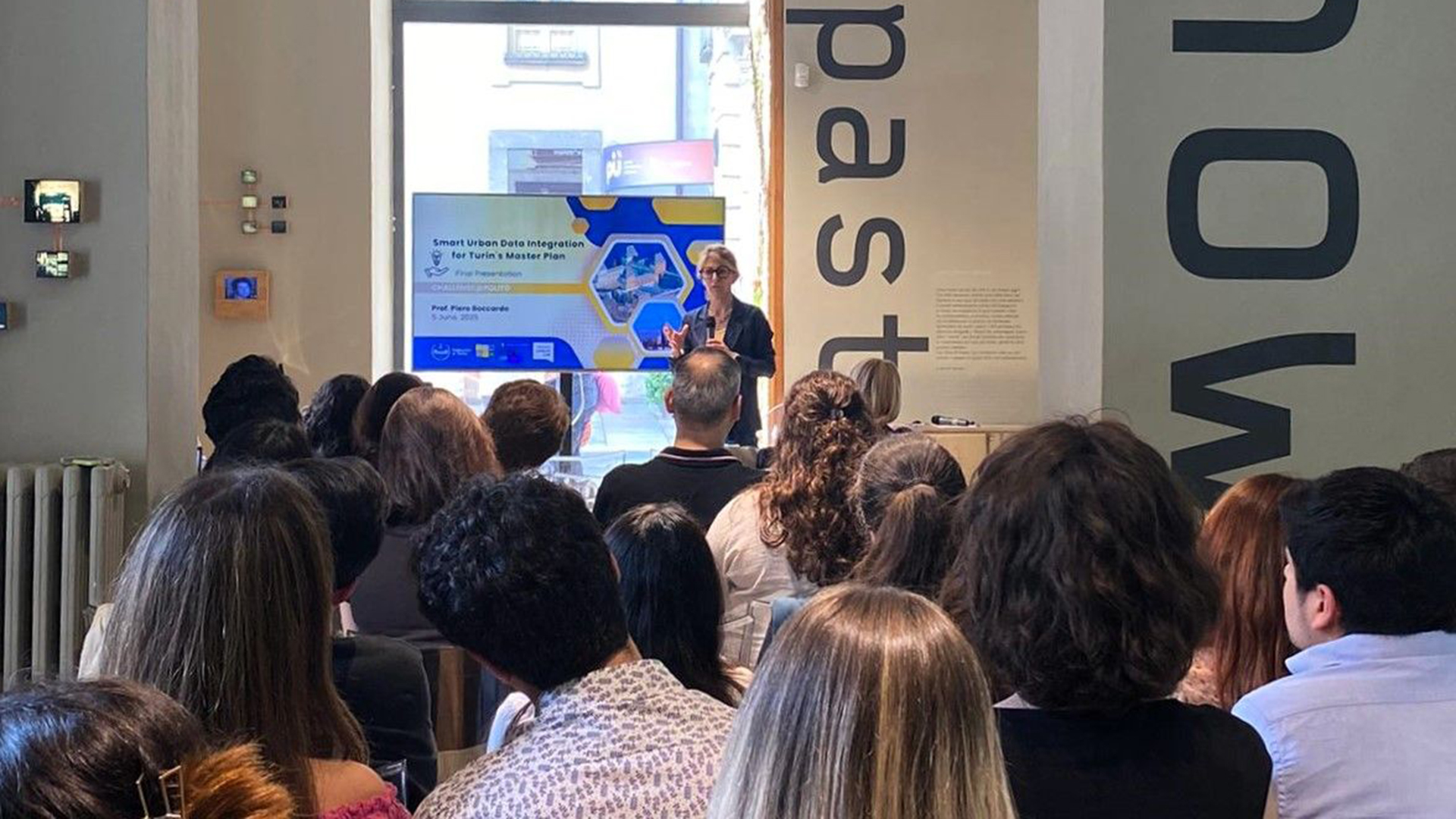
Challenge@PoliTO: A Winning Formula for Companies and Students
Once again this year, the Challenge@PoliTO initiatives organised by CLIK – Connection Lab and Innovation Kitchen – have successfully concluded. Running from March to June, the five challenges engaged over 150 students in total.
These challenges are designed to promote a skills-based teaching model that brings together education, research, technology transfer, and entrepreneurial culture. Adopting a learning by doing and outside-in approach, the initiative aims to address real innovation needs emerging from society.
With this format, the student community experiences the full innovation cycle “idea – prototype – pitch”, working on real-world challenges in collaboration with companies and institutions, and developing highly demanded soft skills in today’s job market, such as communication, teamwork, and time management.
Each challenge involved up to 30 students from diverse academic backgrounds (Engineering, Architecture, Urban Planning, and Design). Participants were grouped into multidisciplinary teams of five or six, working together to develop innovative solutions to practical technological problems, supported by professors and expert mentors.
Four of the five challenges were the Challenge by Firms – proposed by companies and covering a wide range of topics.
On social impact, one particularly impactful challenge was proposed by Alea, as part of the NODES (Nord-Ovest Digitale E Sostenibile) innovation ecosystem – Spoke 5: Health Industry and Silver Economy. Students were involved in improving the design of a prototype for transporting patients with mobility issues on staircases, using devices such as scoop stretchers, wheelchairs, and spinal boards.
The City of Turin also proposed a challenge focused on leveraging urban data to rethink the city through a lens of sustainability and inclusivity. According to City Director General Alessandra Cimadom and Councillor for Urban Planning Paolo Mazzoleni, these new design perspectives contributed meaningfully to the development of the city’s new Master Plan.
As part of Spoke 2 (Green Technologies and Sustainable Industries) of NODES, the Turin section of the Club Alpino Italiano (Italian Alpine Club) launched a challenge centred on sustainable innovation for alpine infrastructure. Proposed solutions ranged from remote monitoring and natural wastewater treatment systems to innovative adaptations of Imhoff tanks for extreme environments – all designed to be scalable and replicable for high-altitude sustainability.
Another high-impact challenge came from the Gruppo Costruttori Edili (Building Constructors’ Group) of the Province of Asti, focusing on the redevelopment of the city’s former hospital site. The student teams envisioned various, yet complementary, architectural proposals – from designing a new landmark building reflecting the local identity to reimagining the surrounding urban context.
Rounding off the programme was the Challenge by Students, launched by Politecnico di Torino itself. This challenge addressed indoor navigation within complex spaces. The result was the development of web platforms to help users find their way in multilayered environments like campuses, hospitals, or museums – with special attention to accessibility, usability, and privacy.
And there’s more to come: new challenges for the 2025-2026 academic year are already in the works and will soon be announced on the CLIK – Connection Lab and Innovation Kitchen website.
